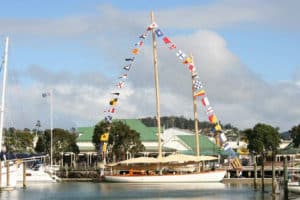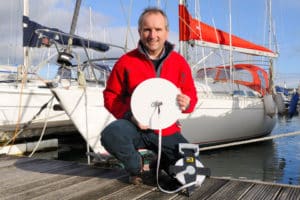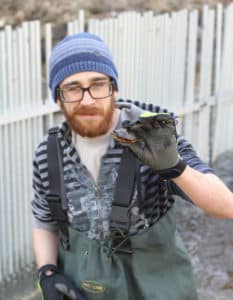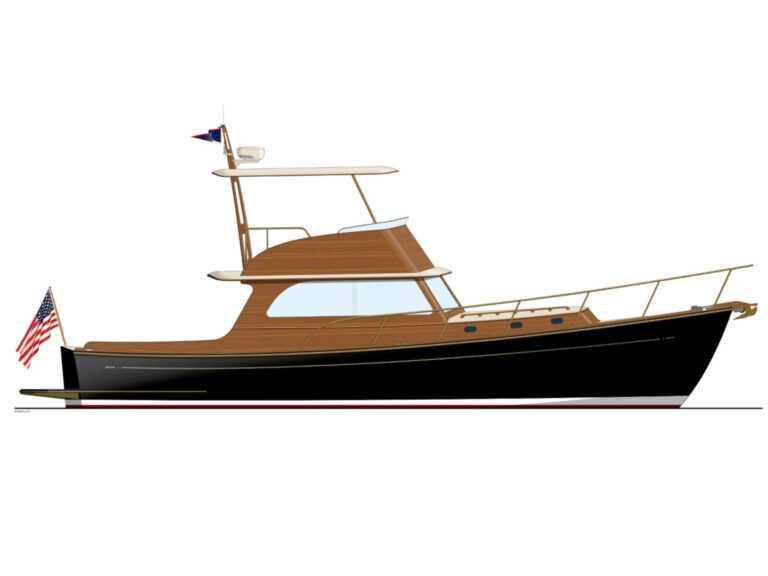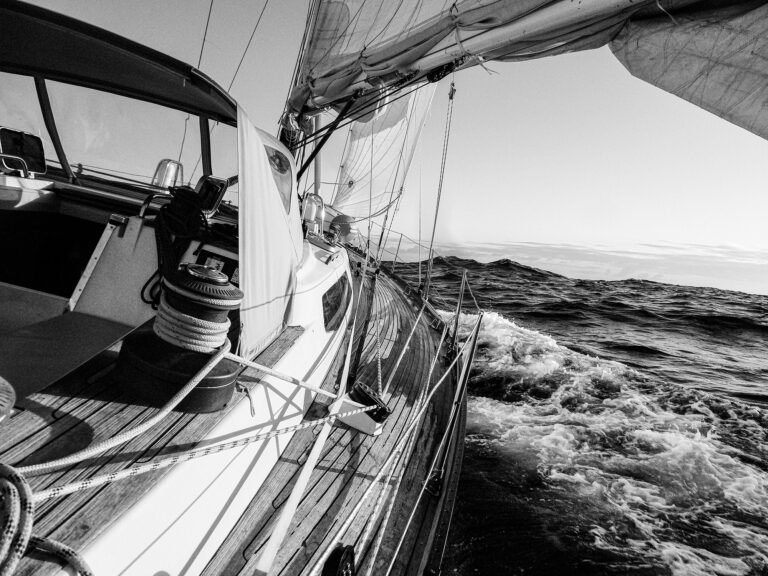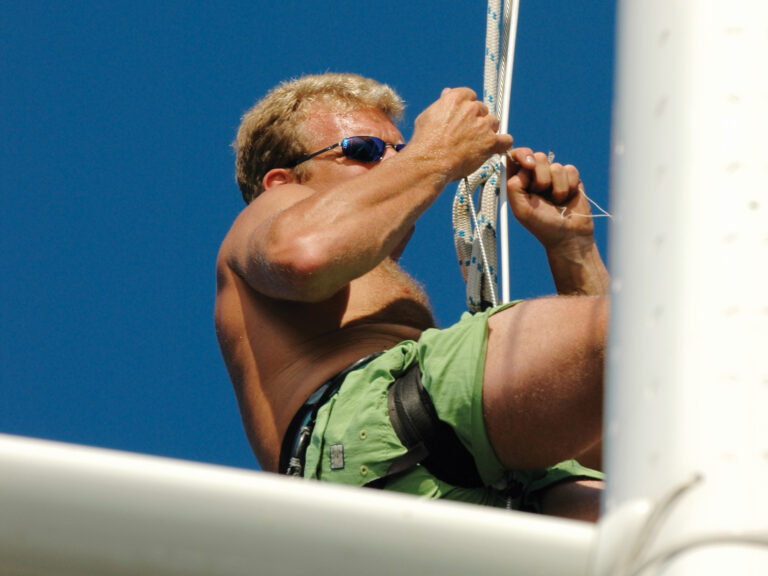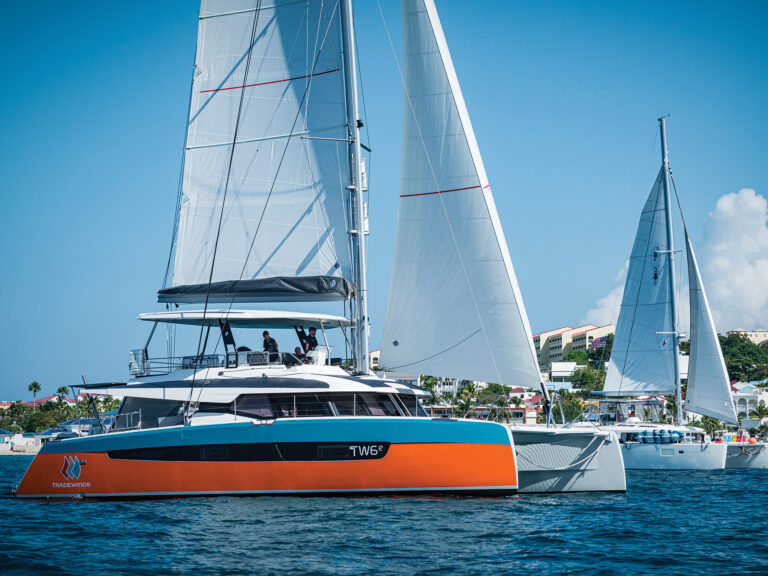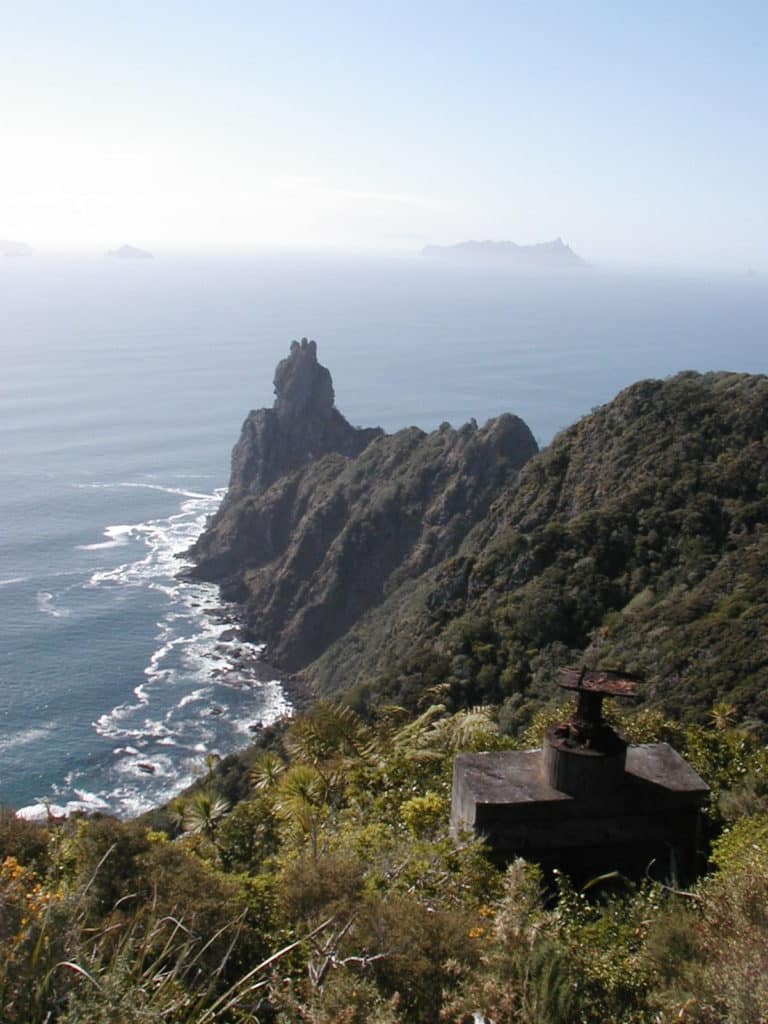
asnewzealand
Bluewater sailors will wax poetic on the beauty, grace and power of the Sea. With a misty eye we will confess our deep devotion to her and pledge eternal love. In that sense we are a pathetic lot for it is an unrequited love. The Sea is as cold as she is deep, as fickle as she is wide. When we venture out upon her, she may usher us on our way with balmy breezes and lap gently upon our hull; or she may thwart us with frustrating headwinds and mountainous waves bent on bashing us to pieces.
Being 3 1/2 years out and on the last leg of our challenging Pacific Rim voyage, and with Diana already in New Zealand ahead of me, perhaps I was a little too anxious to put the last 1,100 of those 22,000 nautical miles behind me. From the moment my nephew, Stephen, and I left the pass south of Lautoka in western Fiji the winds blew contrary from the South Southeast ranging from fresh to near gale. The seas were steep and slammed our 36 foot steel cutter, the Roger Henry, with an unnerving repetition.
A prudent sailor’s first inclination would be to slow down and fall off, but I was not in a prudent mood. Slowing the boat down would have prevented us from flying off the back off steep waves and plummeting into the steep troths behind. Falling off would put us not only on a gentler point of sail but on the recommended course towards the tip of the New Zealand’s North Island. The theory is that by sailing well west of the rumb line, the boat will be set up for a starboard tack back down the coast of the North Island when the inevitable Southwesterly buster comes rolling out of the Tasman Sea.
But for as vague and differing as their opinions often are, all the meteorological pundits agreed that this was a La Nina year. This means that the established high pressure systems would hover over Australian and New Zealand waters pushing the low pressure systems coming across the Tasman to the south. If we positioned ourselves well to the west and the prevailing winds held from the easterly quadrant, we would find ourselves slogging back against both contrary winds and currents too near the swallowing New Zealand coast.
You can’t know what the right thing to do is. You have to follow your instinct then stick to the plan, for the worst thing to do is zigzag around an empty ocean in indecision.
It took the first few days to shake off my customary seasickness and a week to get through a vicious flu that was jumping from boat to boat in Lautoka faster than a ship’s rats. But, especially without Diana’s helping hand, I had to step up to create a seamanlike routine for Stephen to follow. That meant getting the meals out on time, for Stephen proved to have a cast-iron stomach and the appetite of a grizzly. Next was to strictly adhere to the watch schedule, for it is designed to acclimate the body to interrupted sleep patterns as quickly as possible. In spite of feeling weak and sick I forced myself to reef the moment I thought it necessary, shake out those reefs the moment I thought we could safely charge forward, keep a good watch for ships and squalls, and religiously stick to our safety protocols. We never, ever once left the cockpit without being harnessed and hooked on. We talked over each procedure in advance so we both knew what the other crew member was doing and why. In spite of pushing the boat hard, my thinking was “No mistakes now. Not this close to the finish line.”
Steve did well, taking the dramatic crashes and bangs in his stride, waking me whenever a ship appeared, keeping up the log book, tumbling out of his berth the moment he was called. Together we calculated our noon-to noon runs. In spite of the headwinds and combing seas we made good progress, logging runs in the 150s and 160s, not a Roger Henry record, but respectable and close enough to our intended course-line.
Our half-way party was a modest affair. I took yet another wave down my back and nearly lost the one and only precious beer we allowed ourselves on the entire passage. But from that point onward, it all felt downhill. In fact, we made such good time that I feared we would fetch the coast too soon, in the darkness, and Steve would miss that dramatic moment of “Land Ho!” I wanted him to see the rugged yet lush coast that I have come to love.
As Kipling once wrote, the dawn came up like thunder from across the bay. The jagged pinnacles of Whangarei Heads warmed from grey to a rosy pink as the shadow line retreated. Blue penguins scurried out of our path as we tacked into the our home estuary. Two enormous porpoise exploded out of the water right next to the Roger Henry, arching so unbelievably high into the air that both Steve and I shouted, “No Way!” simultaneously.
We probed our way into the new Marsden Cove Marina and slid up to the Customs Quarantine dock. I expected that when we tied the last line off to the dock cleats that we would hoop or holler in celebration. But neither of us wanted to shatter the stillness of dawn or desecrate what felt like a sacred moment. We just gave each other a high five and the long handshake of a job well done.
I do not know how many landfalls I have made in my life. Each passage has a personality of its own, each landfall a unique background setting. But with each comes the deep satisfaction of having navigated one’s vessel safely across an open and unforgiving sea.
In spite of the joyful prospect of seeing my beautiful Diana again, sleeping the long slow and uninterrupted sleep of the dead, rendezvousing with old friends, walking on stable, immutable, still land, I felt an ironic sadness about the journey’s end.
This has been a long and difficult voyage by design. It has tested our skills, endurance commitment and character. It has loomed large and central to my entire being for the last five years. It has spanned a dozen countries, several seas, and almost the entire Pacific, our largest ocean.
“Home is the sailor, home from the Sea.” But how can one come home_ from_ the Sea when the Sea is home? I looked back out over those many miles of the majestic Pacific, who had once again proven herself to be a harsh mistress, but nevertheless, I silently pledged my undying devotion and eternal love.

